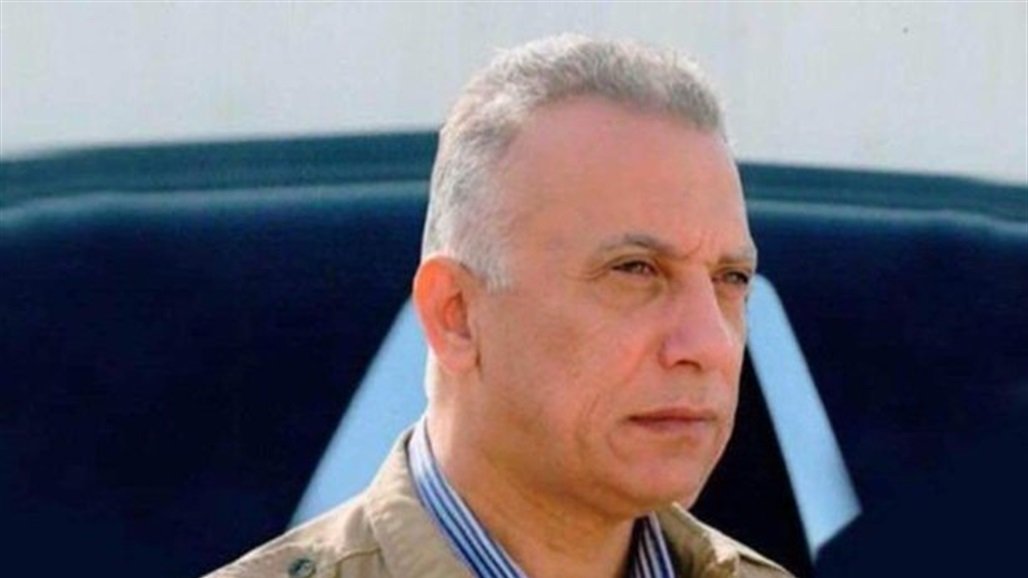After accusing him of "complicity" in Soleimani’s assassination -... "The factions" don’t mind Al-Kathemi’s government

Shafaq News / As of Monday, the talk about the head of the Intelligence Agency, Mustafa Al-Kathemi, as a candidate for the formation of the Iraqi government, was just speculation, especially since many of the armed factions and Shiite political blocs made serious accusations against Al-Kathemi; most notably participation or complicity in the assassination of the commander of “Quds Force” commander Former Iranian Qasim Soleimani and deputy head of the Iraqi Popular Mobilization Organization, Abu Mahdi al-Muhandis,
Al-Kathemi has been also described as an American therefore not different from the current official Adnan Al-Zorfi in terms of the American character, starting with nationality and loyalty as the narrative of accusations says, was not proposed, unlike Al-Zorfi in the Seven Committee formed by the Shiite leaders to choose a candidate to head the government.
After the committee failed to agree on a specific name, the committee raised a group of names to Iraqi President Barham Salih, awaiting what is agreed upon within the leaders of the first Shiite line.
According to information obtained by Shafaq News, President Barham Saleh received the nomination of Al-Kathemi from the Shiite blocs, to assign him a substitute for Al-Zorfi.
Mustafa al-Kathemi, who took over the post of head of the National Intelligence Service, in June 2016, during the era of Haider al-Abadi as prime minister, and he is still in office.
According to the information that was circulated on the night of the commissioning (3-16-2020), the Shiite leaders agreed to the Vice-President of the Presidential Court, Naim Al-Suhail for the position. But it returned, after about two hours from agreeing to it, and canceled the agreement to throw the ball to the President of the Republic, who summoned Al-Zorfi as the latter told the story of his assignment during a meeting last Saturday with journalists.
From what Al-Zorfi said, “The President called me to come to the Peace Palace and with the corresponding representatives after obtaining the support of a number of Shiite leaders.” He indicated that Saleh “issued a decree of assignment at exactly 7a.m. of the16th of March (that is, before an hour from the end of the constitutional deadline ).
Al-Kathemi, whose candidacy was re-proposed two days ago, was not in the narrow circle of Shiite candidates that included its nominal candidates, because Al-Kathemi was excluded from the start after he was charged with serious charges. The information that is being circulated as news is subject to change from time to time, stating that the consensus that was said to have come to consensus on Al-Kathemi yesterday evening, it became clear that it was not a final consensus. Al-Zorfi, who completed his government cabinet and asked to hold a parliamentary session to gain confidence, asked him, according to the “Middle East,” to withdraw from the mandate and apologize for it to the President of the Republic so that the president can withdraw the decree of the commission similar to his withdrawal of the appointing decree of Judge Muhammad Rajab al-Kubaisi as a member of the Federal Supreme Court.
However, Al-Zorfi is known for his stubbornness, “He totally rejected that and said that the parliament session determines whether my government will gain confidence or not,” which means, according to the source, that “he does not think about withdrawing no matter how much it costs”, indicating that “Al-Zorfi's position complicated the situation more; whether on the Shiite blocs that agreed on Al-Kathemi, and on the presidency of Parliament, which faces a difficult position on how to hold the session in such circumstances” .
What is new in rejecting al-Zorfi and the acceptance of Al-Kathemi is almost confined to “Al-Fateh” bloc of Hadi al-Amiri and the armed factions close to it. While al-Zorfi has mixed support from most of the Shiite leaders except for “Al-Fateh,” Al-Kathmi returned two days ago to the scene with sudden acceptance by “Al-Fath” and its leader Hadi Al-Amiri, as well as the leader of “wisdom movement,” Ammar Al-Hakim, who was not rejecting Al-Zorfi as much as he rejected the mechanism assigned to him.
In exchange, the leader of the "Sadrist movement" Muqtada al-Sadr and the leader of the "victory coalition" Haider al-Abadi refuse to assign Al-Kathemi, as sources close to him said that he provided for his acceptance of the position , a written Shiite consensus.





